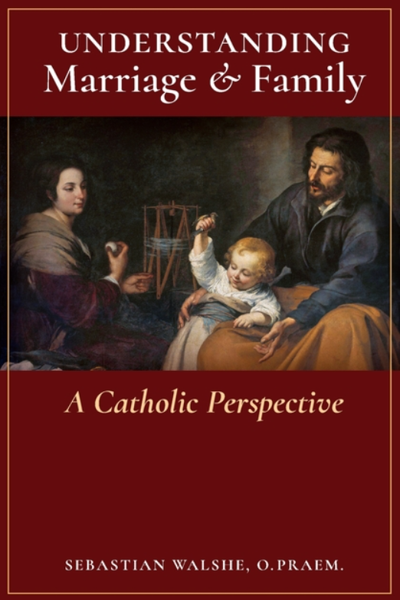Understanding Marriage & Family: A Catholic Perspective, written by Fr. Sebastian Walshe, O.Praem, delves into the nature and reasoning/logic behind Family and Marriage. He divides the book into two overarching approaches: one natural (human reason) and one supernatural (the Trinity and the Holy family) with each of those further divided into individual parts that flow into each other. Common to both approaches is the composition of the work as follows: definitions, examples and elaboration of ideas, followed by Objections and Answers to common (his words) questions and repeat. As for the two approaches, in the first he specifically refrains from the mention of God (although not out of malice) to focus on arriving at conclusions that Catholics take a step further, explained in the next approach. In the second approach, concepts such as the Trinity and the Holy Family are set forth and then the arguments and discussions flow therefrom. Scattered in-between are comparisons and examples that are brilliantly salient and source material from Sacred Scripture, Greek Philosophy, Papal documents, the Saints (St. Thomas Aquinas), etc. Overall, it was a work set out to explain the Sacrament of Matrimony and the resulting Family life against the Modern World's perspective of the two. 5 of 5 stars and would recommend for those discerning Matrimony, although it can be used by anyone.
Opinion: At first, I thought this book would instruct me in the ways of marriage and family life. I was rather surprised when it turned out to be more of an explanation and justification for marriage and family life so I was a bit disappointed. Nonetheless, I did find it adequate with examples and explanations that solidly define marriage and family life that had been alien to me. And make no mistake, you get the sense that Father has heard it all before (maybe compelled him to write this book?) and wants to lay as clear a reasoning as possible. Although I am conflicted, as I feel the first approach a bit unneccessary as, to me, the second approach is much more salient reasoning, albeit much more philosophical/theological. Father explains his reasoning for both approaches well, as the first is meant to be derived from use of natural reason, while the second uses theological concepts and Reality itself to disseminate the importance of marriage and family. Either way I was surprised that Father manages to make salient points in both approaches, hence my confliction, but overall, it was a good work, despite my objections.

